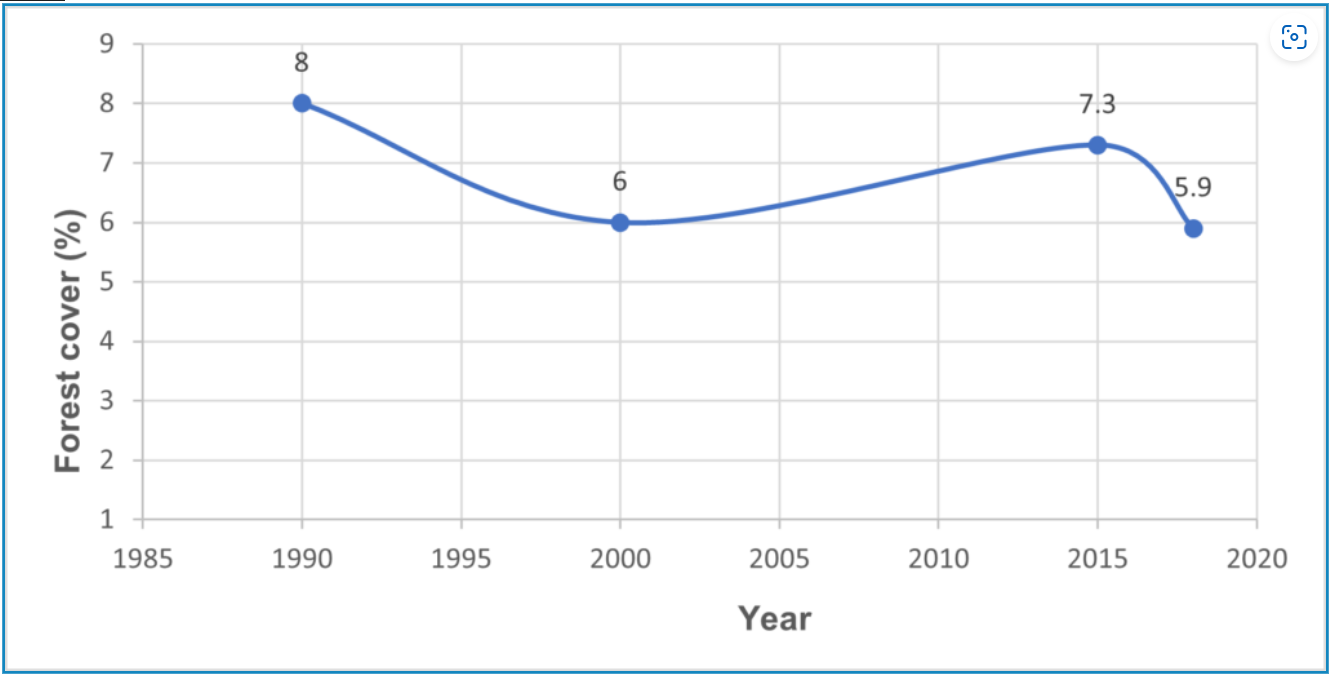Introduction
Since its inception in 1957, the Africa Cup of Nations (AFCON) has been hosted in other countries. Kenya has never had an opportunity to host. It is until recently that Kenya alongside its neighbours Uganda and Tanzania won the bid to host the 2027 AFCON. African countries such as Egypt, Ghana, Nigeria, and South Africa have all hosted the event, having met the Confederation of African Football (CAF) requirements.
CAF is the governing body of African football and determines the host country of AFCON since countries must meet certain requirements prior to hosting the event. The Government of Cameroon hosted the AFCON in 2021, after having spent more than 520 billion CFA (US$ 885 million). This was spent on improving and building new sports facilities, and renovating and upgrading roads, hospitals, airports, and hotels. The inaugural match was at the new US$ 280 million 60,000-capacity Olembé Stadium in Yaoundé, the country’s capital (Pacinella, 2022). In addition, two new 20,000-seat capacity stadiums were constructed in Bafoussam and Limbé, and the 25,000-seat capacity stadium in Garoua was renovated. The official CAF delegation put up at the Krystal Palace, a brand-new five-star hotel in Douala, which was government-funded. About 80% of the hotels where the teams, journalists, and visitors were staying were brand new or had been renovated.
The long-term advantages of hosting AFCON typically outweigh the short-term costs to the local economy. For instance, the 2019 edition brought in US$ 83 million in Egypt. Improvements to transportation networks in popular tourist destinations such as Alexandria, Suez, and Ismailia have benefited locals and visitors alike, raising the country’s profile and attracting more visitors to Egypt.
In Kenya’s bid to host the AFCON, several key areas need to be addressed and prioritized to ensure the successful hosting of the tournament. It is necessary to identify and focus on the most critical aspects that require attention and allocation of resources in a timely manner. Therefore, this blog explores the specific areas of focus that will contribute to an effective and well-executed hosting of the Africa Cup of Nations in Kenya.
Interventions and Gaps in Hosting AFCON
Kenya, Tanzania, and Uganda have joined forces to host AFCON in the East African region for the first time in history. This initiative is referred to as the “Pamoja” bid, with the aim of successfully hosting the AFCON. Since Kenya and its neighbours won the bid, the main task will be ensuring enough venues needed for training and matches are available. The three countries might face infrastructural difficulties, having no record of pulling major sports events. Kenya has previously won the rights to stage continental tournament finals, the AFCON in 1996, and the African Nations Championships (CHAN) in 2018, although they were both unsuccessful since the stadiums did not meet international standards.
For nearly three years, Uganda has not had a stadium approved by CAF. In 2020, Namboole was delisted, and the CAF inspectors recommended an overhaul. Uganda has not renovated the stadium. Tanzania has a CAF-approved stadium, which means only one stadium among the three countries meets international standards. This is compared to a country such as Egypt with at least five CAF-approved stadiums.
Gabon hosted the 2017 event, a country with less than 2 million people, and the tournament allowed locals and residents to showcase their country’s food, music, and dances, and many other parts of Gabonese culture.
Kenya won the right to host the 2018 African Nations Championship (CHAN), although the country was not ready to host, according to CAF. The failure to get ready had a bad reputation for the country and the tournament’s reputation. Since this opportunity came after the election, hosting a successful international sport would have benefited the economic situation of the country then. Moreover, in 1996, Kenya lost the right to host the Africa Cup of Nations because it was not ready. Playing facilities were found to be below standard. This failure hurt the country and its football activities. Therefore, a lot needs to be done to ensure that the country is prepared to host AFCON in 2027.
Key Areas of Focus in Hosting AFCON
To ensure a successful hosting of AFCON a focus on the following areas is critical:
Infrastructure and Stadiums: Upgrading and constructing modern stadiums that meet the CAF standards is crucial. The existing stadiums have to be refurbished, while new ones may need to be built in different regions to accommodate the tournament and provide an exceptional experience for players, officials, and fans. A country needs six stadiums to host the AFCON based on CAF requirements, two of which can accommodate at least 40,000 spectators, another two that can hold at least 20,000, and the remaining two can hold at least 15,000 fans. Various countries that have hosted AFCON have had to undergo transformations over the years. For instance, AFCON was held in Sudan in 1957, while the country’s infrastructure was still developing. Sudan has made significant improvements to its sporting facilities throughout the years. In 1959, Egypt played host to the second Africa Cup of Nations with limited stadiums and infrastructure. This marked the beginning of African countries investing in football facilities. By 1986, Egypt had upgraded its stadiums and accommodation, demonstrating its readiness to host the tournament. Further, Egypt hosted AFCON in 2006, and its stadiums having reached world-class level, which demonstrates the country’s commitment to infrastructural development. Egypt’s latest hosting in 2019 included state-of-the-art stadiums, updated transportation, and enhanced accommodation. The tournaments that Ghana has hosted have progressed from using inadequate infrastructure in 1963 to using upgraded facilities in 1978 and eventually using world-class venues in 2008. There have been improvements made to travel, safety, and lodging throughout the years.
Accommodation and Transport: Sufficient and high-quality accommodation options, including hotels and guesthouses, need to be available to accommodate the influx of visitors. Additionally, efficient transportation systems, including airports, roads, and public transportation need to be improved to ensure smooth logistics during the tournament. This is mostly due to the influx of visitors during the tournament, and it is recommended that they receive proper services. In 1965, when Tunisia first played host, only guesthouses and low-end hotels were available. The main source of transportation was the use of road networks. However, the 1994 tournament witnessed a significant increase in accommodation options due to the introduction of multinational hotel chains. Airports and roads had been upgraded, hence improving the transportation network. In 2004, Tunisia’s infrastructure had advanced to a point where the country now offered upscale hotel alternatives. The network of roads and other transportation hubs are modern.
Security and Safety: Ensuring the safety and security of players, officials, fans, and visitors is paramount. Robust security measures, including crowd management protocols, comprehensive risk assessments, and collaboration with law enforcement agencies need to be implemented by the Government of Kenya to guarantee a safe and enjoyable environment for all. Political turmoil or other security issues may not be suitable for hosting, as was the case with Libya when it withdrew from hosting AFCON in 2017. Militias battling around the capital of Tripoli for control of the city made the country too unsafe to host a major sporting event. Mali, the host country in 2002, had to take extreme safety precautions because of terrorism in the area. This demonstrated the value of ensuring a safe environment for large sporting activities. In the case of South Africa, which hosted AFCON in 1996 in the post-apartheid era, substantial measures were taken to ensure participant safety. Access was restricted, there was enhanced surveillance, and there was heavy police presence to ensure safety. The 2013 tournament benefited from the security measures established during the 2010 FIFA World Cup. Security measures relied heavily on advanced technology, extensive surveillance, and cooperation among security agencies.
Marketing and Promotion: Kenya ought to develop a comprehensive marketing and promotional strategy to generate excitement and attract attention to its bid. Engaging with media, leveraging digital platforms, and collaborating with influential figures could increase visibility and create a positive image of Kenya’s hosting capabilities. The increasing number of people watching AFCON on television is a major factor in the event’s success. Television coverage in 1957 when Sudan hosted the AFCON was limited, and the outreach globally was modest compared to the extensive coverage witnessed today, especially with the advancement of technology. When Egypt hosted in 2019, there was extensive TV coverage and online streaming, which made the tournament accessible to fans globally. Over the years, there has been progress in the way AFCON is consumed due to the growth of technology and media.
During the 2021 AFCON’s group and round of 16 phases, 60 million viewers watched on AfroSport TV, while 90 million watched the 2019 AFCON’s championship game between Senegal and Algeria on BeIN Sports. This shows that by doing proper marketing, many people will be attracted to watch the tournaments globally. Western countries have excelled in promoting FIFA tournaments through strategies for branding, promotion, effective marketing campaigns, and ticketing to maximize participation and tourism, which are crucial aspects that Kenya needs to focus on.
Conclusion and Recommendations
Hosting the African Cup of Nations represents a significant opportunity to showcase the country’s potential, foster economic growth, and promote sports development. Thus, it is important to mobilize adequate resources to meet the logistical, infrastructural, and operational demands of hosting while also guaranteeing the safety, comfort, and enjoyment of all participants and attendees. Through AFCON, more people will visit the country, hence spend money. This has a multiplier effect on the economy and the number of jobs created. Moreover, the favourable reputation of hosting an event of this scale left by AFCON may encourage future events to be held in the country, which in turn may contribute to the creation of further jobs and the improvement of existing infrastructure. Alongside an increase in tourism, the AFCON tournament provides this opportunity to showcase African culture to the world, which can also bring about social benefits for the host nation.
Authors: Winfred Gatwiri, KIPPRA Young Professional
Alex Matiy, KIPPRA Young Professional





